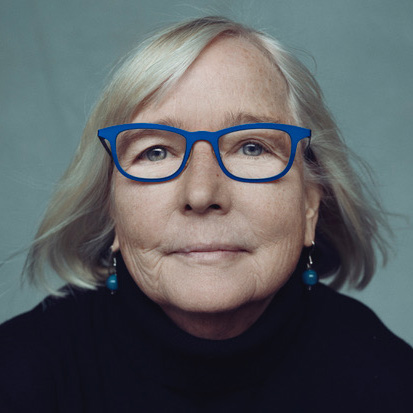Mistakes are the making of us

Opinion
I have made big mistakes during my career and they have all cost myself or the organisation. But there is no doubt that learning from our mistakes make us better at our jobs.
It was Oscar Wilde who said: “Experience is the name we give to our mistakes.”
In his indomitable style, he captures the essence of the dilemma. Namely that, while we value experience, none of us wants to make mistakes if we can possibly help it.
In fact, as you become more senior in your career, the risks and impact of a misjudgement tend to increase in severity. So much so that some people actively avoid leadership positions or promotions because they simply don’t want the corresponding responsibilities.
I remember vividly the first big mistake I made at work. I was an account executive in a London advertising agency in the days when we produced cardboard layouts showing the precise placement of any imagery and type. It was what the client saw and signed off before the final ad was sent to magazines for publishing.
Eager to action the next stage after a meeting, I briefed in a layout but gave the wrong version of the headline and copy. I realised my mistake as soon as it came back a few days later.
It was a total write-off and had cost £200 to produce. To give some context, my annual salary at the time was £5,500, so this represented half of my monthly income. I was horrified. Having been raised to own up when things went wrong, I immediately confessed to my account director and offered to pay for the mistake.
To my immense relief, he didn’t fire me and explained that the agency would absorb the cost, but made sure I learned my first important lesson on version control and tracking changes.
He also told me not to make the same mistake again or I would be fired. I can still feel the intense fear and relief all these years later.
Trust in your professional competence
Having had that horrible experience, I was always determined never to put myself in that position again. Worrying about the detail, treating the company money as if it were my own and double-checking before incurring costs became a way of life.
So, too, did understanding the importance of owning up, so the situation didn’t get any worse. There is no doubt that learning from our mistakes make us better at our jobs.
Learning by proxy through other people’s mistakes is equally valuable. I have always appreciated managers who create a culture that encourages the public sharing and discussion of mistakes.
I know some people go as far as talking about “celebrating” mistakes and even establishing “wooden spoon” awards for the gaff of the month, but personally I settle for transparency. No-one really feels like celebrating getting something wrong and calling someone out is a bit too close to being publicly ridiculed for my liking.
But making sure there are no cover-ups and that mistakes are only ever made once is good practice.
Being accountable for the mistakes of others
One of the issues leaders have to face is being ultimately accountable for the mistakes made by people in our team.
It’s a tough one. Of course, it is only right that leaders should be held responsible for the way the team is organised, how decisions are made, what processes are in place and the quality of the work delivered.
But we all know that some people are so fearful of their team making mistakes that they become micro-managers. Hovering over every detail, unable to let go and allow people to get work done in their own way and, yes, making their own mistakes.
The sooner we learn that energy is better spent as a leader encouraging our teams to take responsibility, the better. It is not only more efficient, but it is how people learn and develop.
Micro-managing doesn’t work
After the joy of running my own business during my thirties, I was very careful to subsequently choose bosses who maximised the autonomy I was given.
It is why I worked for Amanda Mackenzie three times at BT, British Gas and Aviva. She never shied away from firing poor performers. I learned how important it was to make tough decisions in the interest of raising the overall performance and happiness of the team. If people are professionally incompetent, it is your job to remove them.
We spoke in advance about how we would work together and what level of involvement she preferred. She said she recruited me because I knew what I was doing, so she expected me to get on with the job without constantly checking in with her. She assured me that she would have my back if I got something wrong and would give me the benefit of the doubt in any dispute.
But, in return, I must always tell her the truth, get to her quickly if something went wrong and never hide any mistakes. During the time I worked with her, I observed how important her use of humour was in difficult times and her disdain for people who blamed others rather than taking responsibility themselves.
High-performing teams learn from mistakes
Nowadays, we have frameworks like psychological safety to explain the culture that Amanda created in her team. McKinsey describes this as “feeling safe to take interpersonal risks, to speak up, to disagree openly, to surface concerns without fear of negative repercussions or pressure to sugarcoat bad news”.
Amanda led by example. To be in her team was to experience her readily sharing her own cock-ups. But, most of all, she encouraged us to laugh. It might take days, weeks or even months to be able to see the funny side of whatever had happened, but we would get there eventually.
She often said: “What doesn’t kill you makes you stronger.” And it was true. Her whole approach was to do your best and, if things still went wrong, well, you would live to fight another day.
Keeping a sense of proportion
During my career, I have made big mistakes and they have all cost myself or the organisation I was working with much more than the £200 error I made as a young trainee.
I have hired the wrong people, failed to fire poor performers quickly enough, wasted money on ineffective campaigns, been too slow to respond to economic downturns and not listened attentively enough to criticism.
But I know I have learned from every mistake and the ratio of good decisions has far outweighed the bad ones.
I approach difficult decisions by asking myself: “What is the worst thing that can happen if I get this wrong?” And having done that risk assessment, I make sure I mitigate the potential downside as much as possible before going ahead.
In the end, the worst thing you can do as a leader is not deciding at all for fear of making the wrong call.
 Jan Gooding is one of the UK’s best-known brand marketers, having worked with Aviva, BT, British Gas, Diageo and Unilever. She is now an executive coach and is also chair of Pamco and Utopia. She writes for The Media Leader each month.
Jan Gooding is one of the UK’s best-known brand marketers, having worked with Aviva, BT, British Gas, Diageo and Unilever. She is now an executive coach and is also chair of Pamco and Utopia. She writes for The Media Leader each month.




